| 08:00 |
Registration, Tea/Coffee & Exhibition
|
| 09:00 |
President's Welcome
Amit Patel
|
| 09:20 |
Trusted and Effective Regulation The GDC’s Corporate Strategy for the next three years has been approved, after a public consultation over the summer.
We want to play our part, with others, in patients receiving good oral health care across the UK. We will support dental professionals to provide safe care for their patients. We want to be – and to be recognised as being – trusted and effective as a regulator.
We want to develop our approach to regulation and how we work with others, particularly dental professionals, our partners and patients, using our values to drive these changes: we want to be recognised as being respectful, transparent, inclusive and purposeful.
The feedback that we consistently receive from dental professionals and stakeholders is about fear and the need to modernise and reform. We have listened. Addressing these priorities is at the centre of our priorities for the years ahead.
In this session, we will share what we have and will do to reduce the negative impact that fear around Fitness to Practise proceedings has on professionals and therefore upon patient safety.
Learning Objectives
Theresa Thorp 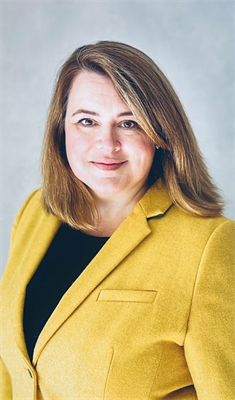
Theresa joined the GDC in September 2023 as Executive Director, Regulation. Theresa is a Solicitor-Advocate (Criminal), with over 20 years’ experience advising and presenting in the public and private spheres. She is a qualified Advocate with rights of appearance in the South African High Courts and a Solicitor-Advocate in England and Wales. A former Crown Advocate specialising in prosecuting child abuse and serious sexual offences, she joined the Institute of Chartered Accountants in England and Wales (ICAEW) in 2015 and thereafter the Royal Institution of Chartered Surveyors (RICS) in 2017 before joining the GDC.
|
| 09:40 |
Immediate Implants, Evolving Protocols, Illustrating a Novel Approach to Angle Correction My approach to immediate implant placement has evolved. In this presentation, I will share case studies, illustrating how and why my techniques have changed, and the benefits I’ve observed in terms of patient outcomes and workflow efficiency.
Briefly covering indications for immediate implant placement, explaining not only the criteria I consider, also how I execute these cases in a predictable and minimally invasive way. Emphasis will be placed on the why, the clinical rationale for choosing immediate placement particularly in the anterior zone.
A key focus is a novel approach to angle correction, game-changer in achieving screw-retained restorations in cases with compromised or severe bone angulation. I will showcase the use of a narrow multi-unit abutment, recently introduced to the market, which allows for precise correction of angulation.
This technique enables screw-retained restorations where the screw channel emerges through the cingulum even in complex angulation scenarios —a more prosthetically ideal location, avoiding buccal screw emergence, bulky prostheses palatally or the need for cement-retained crowns. Resulting in better aesthetic and biological outcomes.
Learning Objectives
-
Identify the clinical indications and criteria for immediate implant placement
-
Explain the benefits of a minimally invasive, predictable approach to immediate implant placement
-
Describe a novel angle correction technique using the profile abutment to manage compromised bone angulation
-
Evaluate how screw-retained restorations in ideal prosthetic positions can improve aesthetic, functional, and biological outcomes.
Andrew Little 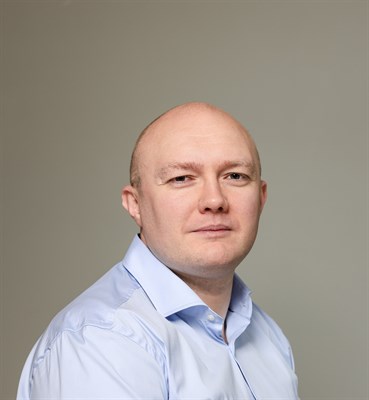 Dr. Andrew Little graduated from Queen’s University Belfast in 2008. Dr. Little owns and runs Precision Implant clinic Banbridge. With over 15 years of experience in implant dentistry, trained under the renowned Dr. Ashok Sethi, Dr Little undertake all aspects of implant dentistry, from the single implants in the aesthetic zone to complex hard and soft grafting, and full arch rehabilitation, delivering high-quality care tailored to each patient’s needs. He teaches for JAG Implant training Academy, Eduqual accredited implant training course. Currently the Northern Ireland ADI representative and board Member. Register to work in UK and Ireland. Dr. Andrew Little graduated from Queen’s University Belfast in 2008. Dr. Little owns and runs Precision Implant clinic Banbridge. With over 15 years of experience in implant dentistry, trained under the renowned Dr. Ashok Sethi, Dr Little undertake all aspects of implant dentistry, from the single implants in the aesthetic zone to complex hard and soft grafting, and full arch rehabilitation, delivering high-quality care tailored to each patient’s needs. He teaches for JAG Implant training Academy, Eduqual accredited implant training course. Currently the Northern Ireland ADI representative and board Member. Register to work in UK and Ireland.
|
| 10:00 |
Making it Easier to Make and Maintain Multi Unit Fixed Restorations Restoration of multiple implants can present a significant increase in complexity and complication of treatment. The need to be able to easily retrieve such restorations amplifies this. I will present an innovative system that dramatically simplifies this process, validated by a 10 year evidence base and 2 years of my own experience.
The presentation is largely focussed on fixed restorations but also examines factors that may make a removable restoration preferable or even the possibility to easily swap between the two.
Most large fixed restorations require the use of multi-unit abutments which may have to be angled. This can cause significant aesthetic, technical and mechanical problems, which are all significantly mitigated with this technique.
Furthermore, it is considerably easier to remove a fixed restoration whilst at the same time making it possible to almost eliminate screw access channels. This facilitates better maintenance of the restoration and thus better oral hygiene.
Learning Objectives
-
An introduction to a new system of screwless, retrievable fixed restorations.
-
Review of the one abutment one time technique
-
Alternative techniques for immediate restoration of implants
Jason Buglass 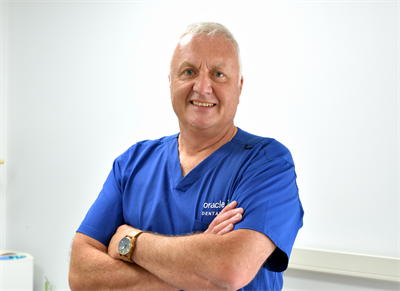 Jason qualified 1987 from UCL, have been in private practice since 1991. He did his initial implant training in 1993 and his practice has been limited to implants since 1999. He has lectured widely, including the very first ADI Forum. Jason qualified 1987 from UCL, have been in private practice since 1991. He did his initial implant training in 1993 and his practice has been limited to implants since 1999. He has lectured widely, including the very first ADI Forum.
For a while Jason ran a midlands branch of the ADI study club, having been a member since 1996
Since 2008 he has run implant supply companies which introduced osseodensification to the UK as well as running implant training courses since 2000.
Jason's company the distributor for the abutment system shown in this presentation.
|
| 10:20 |
A Complex Maxillary FP1 IFAL Case: Balancing Adaptability and Precision This case presentation follows the full journey of a complex maxillary FP1 immediate full-arch load (IFAL) in a high-smile patient. It demonstrates how fully digital planning was combined with both pilot-guided and freehand surgical techniques, leading into a hybrid analogue/digital prosthetic workflow. Particular emphasis is placed on the recognition and management of an intraoperative complication, with practical strategies for maintaining predictability and aesthetics under challenging conditions.
The session highlights digital–analogue synergy, complication management, and clinical decision-making in high-demand full-arch cases.
Learning Objectives
- Apply digital workflows to effectively plan complex FP1 IFAL cases.
- Adapt surgical techniques between guided and freehand approaches when required.
- Identify shortfalls and act appropriately to ensure success.
- Recognise the importance of reflection and continuous learning in complex full-arch treatment.
Adam Bzeu 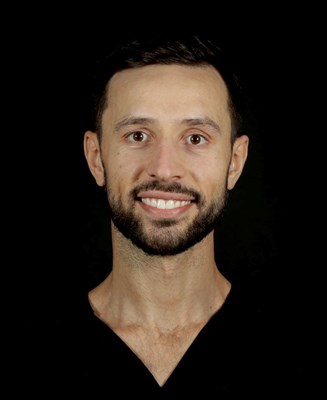 Adam is a dentist working between Ireland and England with a practice limited to dental implants and oral/periodontal surgery. His clinical work ranges from routine implant placement to full-arch rehabilitation and complex bone and soft tissue augmentation. He has completed hospital training posts in Oral & Maxillofacial Surgery and Restorative Dentistry, holds a Master’s in Dental Implantology and a Postgraduate Diploma in Periodontics, and is soon to begin a postgraduate course in clinical education. Adam is a dentist working between Ireland and England with a practice limited to dental implants and oral/periodontal surgery. His clinical work ranges from routine implant placement to full-arch rehabilitation and complex bone and soft tissue augmentation. He has completed hospital training posts in Oral & Maxillofacial Surgery and Restorative Dentistry, holds a Master’s in Dental Implantology and a Postgraduate Diploma in Periodontics, and is soon to begin a postgraduate course in clinical education.
Adam has undertaken further training on national and international courses in advanced implant surgery and grafting. He accepts referrals for implant treatments and grafting, and is committed to continually developing his skills through courses, experience, and mentorship to provide predictable care for patients.
|
| 10:40 |
Panel Discussion
|
| 11:00 |
Tea/Coffee & Exhibition
|
| 11:30 |
Older and Wiser? Why I Wouldn't Treat These Successful Cases the Same Way Again I will present two cases that have been successful over many years, but that I wouldn’t do the same way now. I will ask why we do risky treatments and who we are really doing them for.
Learning Objectives
- Why I wouldn’t perform these procedures in the same way today
- Why dentists attempt procedures outside of their competence
- When we should “push the boundaries” and when not to
- What’s the right way to learn new procedure
Bill Schaeffer 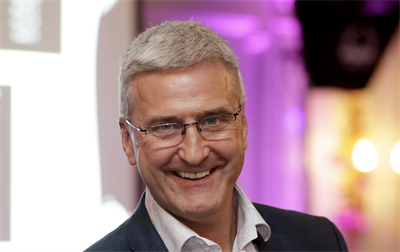 Bill Schaeffer is qualified in dentistry and medicine, has post-graduate qualifications in both dental and general surgery and is recognised as a specialist Oral Surgeon. He has been placing dental implants since 1996 and is experienced in a number of different implant systems. He is co-owner of two implant centres in Sussex, which focus purely on dental implant treatments. Bill is the South East England Committee representative and was Director of Education for the Association of Dental Implantology (2009-2011). Bill Schaeffer is qualified in dentistry and medicine, has post-graduate qualifications in both dental and general surgery and is recognised as a specialist Oral Surgeon. He has been placing dental implants since 1996 and is experienced in a number of different implant systems. He is co-owner of two implant centres in Sussex, which focus purely on dental implant treatments. Bill is the South East England Committee representative and was Director of Education for the Association of Dental Implantology (2009-2011).
|
| 11:50 |
Michelin Standards What Makes a World-Class Clinician?
What sets true experts apart isn’t just knowledge—it’s the small, often overlooked details that transform outcomes. After a day shadowing Nick Fahey and Rob Oretti, I’ll share the subtle techniques and decision-making processes that make a world-class difference in clinical practice.
This talk is designed to spark fresh thinking and deliver practical, actionable tips you can apply immediately in your own work. Through real cases—including immediate implant placement, soft tissue surgery, immediate loading, provisionalisation techniques, guided surgery, and more—you’ll see how world-class clinicians consistently achieve exceptional results.
Learning Objectives
-
Identify the subtle clinical decisions and techniques used by world-class clinicians that have a significant impact on long-term outcomes
-
Apply practical, step-by-step strategies in immediate implant placement, soft tissue surgery, and guided protocols that can be implemented the very next day in practice
-
Develop a framework for elevating everyday clinical work by integrating overlooked details that differentiate routine treatment from exceptional, world-class results.
Dipesh Kothari 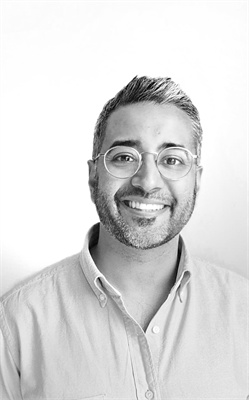 Dipesh is a general dentist whose practice is limited to implant dentistry. Dipesh is a general dentist whose practice is limited to implant dentistry.
He teaches regularly on various courses and enjoys teaching as a means of motivating others to unlock the skills and confidence to improve their results.
His interests within the field include photography, immediate implant protocols and integrating digital workflows to improve predictability in achieving aesthetic results.
Beyond the clinic, Dipesh is currently completing a Professional Certificate in Executive Coaching with Henley Buisness School.
|
| 12:10 |
The Game Changing Treatment for Your Patients who Break Everything! Parafunctional patients are one of the most frustrating challenges we face in practice. Repeated emergency appointments, the same patients returning with yet another broken tooth or fractured implant bridge — we’ve all experienced that sinking feeling when we see their names in the diary.
But here’s the good news: there is a solution.
A simple, painless, evidence-based approach that can dramatically reduce fracture rates — transforming not just your patients’ outcomes, but your clinical experience too.
In our busy implant clinic, incorporating masseteric Botox has been a game-changer. The results speak for themselves — fewer fractures, fewer emergency appointments, and happier patients.
Join me as we explore this common problem and how this minimally invasive treatment can help you take control of those all-too-familiar fractures.
Learning ObjectivesAims:
- To highlight the benefits of Masseteric Toxin Injections.
- How this effective treatment can be incorporated into your Treatment Plans.
Objectives:
- Explain how and why it works.
- Case Studies to show the various modalities in which it is successfully used in Dentistry.
Sally Rayment 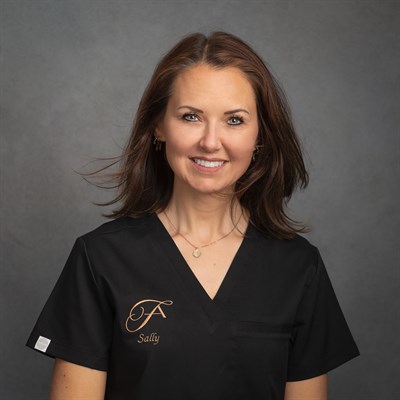 Dr Sally Rayment is a restorative dentist at The Implant Centre in Sussex, with over two decades of experience in implant restoration, with a particular focus on the Dentsply Sirona Ankylos system. Since graduating from Guy’s Hospital, London, in 2004, she’s built a career deeply rooted in implant prosthodontics - combining clinical precision with a genuine passion for restorative outcomes. In 2023, she completed a Master of Clinical Dentistry in Fixed and Removable Prosthodontics at King’s College London, further refining her expertise in complex rehabilitation. Dr Sally Rayment is a restorative dentist at The Implant Centre in Sussex, with over two decades of experience in implant restoration, with a particular focus on the Dentsply Sirona Ankylos system. Since graduating from Guy’s Hospital, London, in 2004, she’s built a career deeply rooted in implant prosthodontics - combining clinical precision with a genuine passion for restorative outcomes. In 2023, she completed a Master of Clinical Dentistry in Fixed and Removable Prosthodontics at King’s College London, further refining her expertise in complex rehabilitation.
Sally is known for her practical, patient-centred approach and her commitment to staying at the forefront of evolving techniques and materials. Outside the clinic, she balances her professional drive with road cycling, running, and family travel.
|
| 12:30 |
Panel Discussion
|
| 12:50 |
Lunch & Exhibition
|
| 13:30 |
AGM (in Wolfson Theatre)
|
| 14:00 |
From Deficit to Dream: The Art of Bone Grafting in Implant Dentistry This lecture provides an overview of bone grafting in the context of dental implantology. It explores the biological principles, indications, and classifications of bone grafts—autografts, allografts, xenografts, and synthetic grafts—along with their respective advantages and limitations.
Emphasis is placed on the importance of bone volume and quality for successful implant placement, as well as the role of guided bone regeneration (GBR) techniques. Clinical case presentations illustrate decision-making protocols, surgical techniques, and post-operative considerations. The lecture is designed for dental professionals seeking to enhance their understanding and clinical skills in managing deficient alveolar ridges for optimal implant outcomes.
Learning Objectives
- To understand the physiological bone formation process
- To be aware of the bone graft materials available currently
- To be exposed to the pros and cons of different materials
- The future of bone graft research
Alaa Aldaadaa 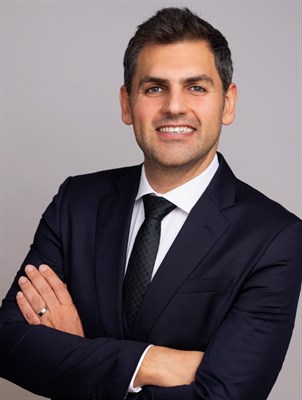 Alaa is a Consultant Oral Surgeon and Clinical Academic based in central London, with special interests in craniofacial reconstruction and regenerative surgery. He attended University College London achieving a PhD in craniofacial reconstruction and tissue engineering, a Master of Clinical Dentistry in Oral Surgery with Distinction, and certification in Implant Dentistry. His higher surgical training was undertaken at the UCL Eastman Dental Institute and University College London Hospitals, following earlier posts at Barts and The Royal London, the University of Warwick, the University of Michigan (USA) and the University of Münster (Germany). He has also trained internationally with leading surgeons across Europe and the United States, developing expertise in complex oral surgery, implantology, and tissue regeneration. Alaa is a Consultant Oral Surgeon and Clinical Academic based in central London, with special interests in craniofacial reconstruction and regenerative surgery. He attended University College London achieving a PhD in craniofacial reconstruction and tissue engineering, a Master of Clinical Dentistry in Oral Surgery with Distinction, and certification in Implant Dentistry. His higher surgical training was undertaken at the UCL Eastman Dental Institute and University College London Hospitals, following earlier posts at Barts and The Royal London, the University of Warwick, the University of Michigan (USA) and the University of Münster (Germany). He has also trained internationally with leading surgeons across Europe and the United States, developing expertise in complex oral surgery, implantology, and tissue regeneration.
Alongside his clinical practice, Dr. Aldaadaa is Visiting Professor at universities in the UK and Europe, a contributor and reviewer for peer-reviewed journals, and consultant to global industrial dental and medical companies. His work reflects a commitment to advancing oral surgery through research, innovation, and education.
|
| 14:20 |
The Power of Not Knowing! Implant therapy in patients with severely resorbed edentulous spaces—particularly in the aesthetic zone and involving adjacent teeth—is clinically demanding. These challenges arise from high patient and clinician expectations, complex treatment planning, and the need for careful patient selection. A limited understanding of hard and soft tissue defect types, anatomical variations, and potential complications can further compromise outcomes.
Successful management requires comprehensive knowledge of biomaterials, defect classification, surgical techniques, post-operative protocols, and complication handling. The role of healthy connective tissue is also critical, as it significantly impacts both immediate aesthetic outcomes and long-term implant success.
In routine implant practice, clinicians frequently encounter varying degrees of horizontal and vertical bone and soft tissue deficiencies, across single or multiple edentulous sites. This presentation will explore a range of clinical cases—both successful and unsuccessful—highlighting the management of complex hard and soft tissue defects, treatment complications, and evidence-based strategies for improved outcomes.
The focus will be on diagnosis, treatment planning, surgical execution, and the anticipation and management of complications, with the goal of enhancing predictability in challenging aesthetic cases.
Selvaraj Balaji 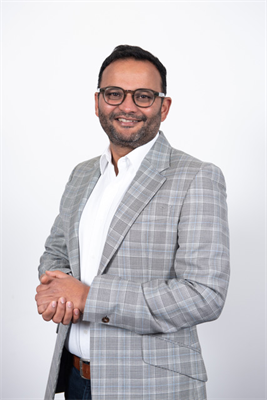 Since he obtained the BDS Degree, he worked in Maxillofacial units in the UK for several years and gained substantial experience in surgical dentistry. Since he obtained the BDS Degree, he worked in Maxillofacial units in the UK for several years and gained substantial experience in surgical dentistry.
For the past 16 years, Dr Balaji has been working in his private dental practice, which is based in Buckingham. He is the founder of ASHA (Academy of Soft and Hard Tissue Augmentation). At present, his practice is focused only on dental implants and regeneration techniques.
Dr Balaji has placed a few thousand dental implants to date over the last 15 years. He has travelled around the world to develop his skills and worked with world-renowned implant surgeons.
- Completed a 2-year Master Program in Soft Tissue Around Teeth and Implants at the University of Bologna with Prof. Giovanni Zucchelli
- Full curriculum of autogenous bone grafting technique with Prof. F. Khoury in Germany
- Advanced Surgical Master Curriculum in Regenerative Implant Dentistry with Istvan Urban in Budapest
- TMJ and occlusion curriculum with Peter Dawson in the USA
- Implant curriculum with Dr. Hilt Tatum.
He also holds:
- MFDS RCPS in Glasgow
- MFDS RCS in Edinburgh
- LDSRCS in London
Dr Balaji routinely mentors other dentists using the latest skills and techniques. He has an enduring passion and commitment to his work, teaching, and keeping up to date with the latest surgical innovations and research to ensure his patients receive the best possible care in his practice.
|
| 14:40 |
Grafting for Greatness: Predictable Mucogingival Surgery in Modern Practice This lecture provides an evidence-based overview of mucogingival surgery for periodontal soft tissue management. Key topics include indications for surgery, root coverage techniques, connective tissue grafting, and factors influencing long-term functional and aesthetic outcomes.
Learning Objectives
-
To provide an evidence-based overview of mucogingival surgical techniques, their indications, and key factors influencing clinical success in periodontal and peri-implant soft tissue management
-
Define mucogingival conditions and explain their clinical significance in both periodontal and implant therapy
-
Recognise key indications for mucogingival surgery, including the management of gingival recession, shallow vestibule, and inadequate keratinised tissue
-
Describe the principles and indications of commonly used root coverage techniques—such as the coronally advanced flap (CAF), laterally closed tunnel (LCAT), modified coronally advanced tunnel (MCAT), and modified coronally advanced flap (MCAF)—including case selection based on tissue phenotype and defect classification
-
Outline connective tissue graft (CTG) harvesting methods and discuss technique variations that influence graft quality and surgical outcomes
-
Evaluate how anatomical features, patient-specific factors, and surgical variables impact clinical and aesthetic results
-
Compare long-term clinical outcomes between CAF and tunnelling techniques, with reference to current evidence
-
Integrate aesthetic and functional considerations into treatment planning to optimise long-term stability and patient satisfaction.
Payvand Menhadji 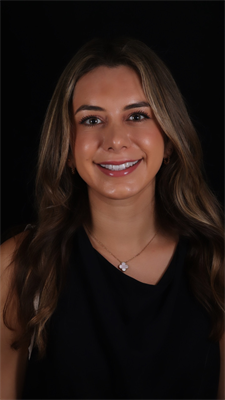 Dr Payvand Menhadji is a Specialist Periodontist and Implant Surgeon. She completed her MClinDent in Periodontology at King’s College London through a highly competitive 4-year specialist training programme and focuses exclusively on periodontics and implant dentistry. She works at various clinics around central and west London managing complex periodontal and peri-implant cases referred from across London and beyond. Her clinical expertise lies in mucogingival surgery, including all types of gum grafting around teeth and implants, and aesthetic and functional crown lengthening. She also routinely carries out non-surgical therapy, regeneration, resective procedures, and implant placement with hard and soft tissue augmentation. Dr Payvand Menhadji is a Specialist Periodontist and Implant Surgeon. She completed her MClinDent in Periodontology at King’s College London through a highly competitive 4-year specialist training programme and focuses exclusively on periodontics and implant dentistry. She works at various clinics around central and west London managing complex periodontal and peri-implant cases referred from across London and beyond. Her clinical expertise lies in mucogingival surgery, including all types of gum grafting around teeth and implants, and aesthetic and functional crown lengthening. She also routinely carries out non-surgical therapy, regeneration, resective procedures, and implant placement with hard and soft tissue augmentation.
Dr Menhadji’s research has been presented at EuroPerio and published in high-impact peer-reviewed journals. Alongside clinical practice, she is active in education and leadership, delivering lectures nationally and internationally, and serving on the ADI Next Generation Committee to support early-career clinicians. She has also represented the BSP as Early Careers Mono-Speciality Representative.
|
| 15:00 |
Autologous Platelet Concentrates: What, Why and When? Autologous Platelet Concentrates (APCs) have become a popular adjunct in implant dentistry due to their ease of chair-side preparation and minimal risk of disease transmission. Despite their widespread use, over two decades of research have presented conflicting evidence regarding their clinical efficacy in promoting wound healing and hard and soft tissue regeneration. This presentation provides a comprehensive, evidence-based review of various APCs, including Platelet-Rich Plasma (PRP), Platelet-Rich in Growth Factors (PRGF), and Leucocyte-Platelet-Rich Fibrin (L-PRF). We will explore their distinct biological compositions and critically evaluate their documented clinical benefits. Drawing upon novel data from a clinical PhD project, which incorporates proteomic, histological, 3D geometric, and clinical outcome analyses, this presentation will offer new insights into how APCs influence the biological phases of wound healing. Ultimately, a deeper understanding of these mechanisms is essential for the evidence-based application of APCs, enabling clinicians to optimize their use for predictable and enhanced patient outcomes in various clinical scenarios.
Learning Objectives
- Differentiate between various types of Autologous Platelet Concentrates based on their biological composition and preparation protocols.
- Critically appraise the evidence supporting the use of APCs in wound healing and oral tissue regeneration.
- Explain the spatiotemporal effects of APCs on the different phases of wound healing, incorporating novel findings from proteomic and 3D imaging analyses.
- Identify optimal clinical scenarios for the application of specific APCs to enhance patient outcomes in implant dentistry.
Ahmed Naji 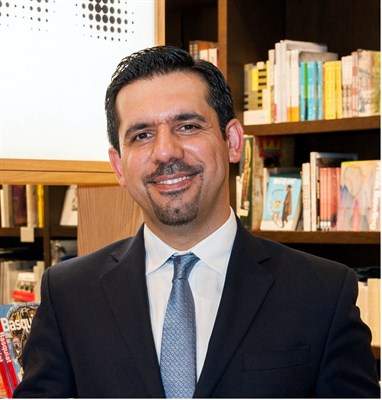 Dr Ahmed Naji is a Clinical Lecturer in Oral Surgery and a Clinical Research Fellow at the Centre for Oral Clinical Research, Queen Mary University of London. He earned his MSc in Dental Implantology from the University of Manchester in 2014 and, in 2018, received the prestigious fellowship of The Medical College of Saint Bartholomew's Hospital Trust to support his clinical PhD research. With extensive experience in private practice, he focuses on complex oral surgery, implantology, and periodontal therapies. Dr. Naji combines a modern, evidence-based approach with a passion for art and science to provide bespoke surgical care. Dr Ahmed Naji is a Clinical Lecturer in Oral Surgery and a Clinical Research Fellow at the Centre for Oral Clinical Research, Queen Mary University of London. He earned his MSc in Dental Implantology from the University of Manchester in 2014 and, in 2018, received the prestigious fellowship of The Medical College of Saint Bartholomew's Hospital Trust to support his clinical PhD research. With extensive experience in private practice, he focuses on complex oral surgery, implantology, and periodontal therapies. Dr. Naji combines a modern, evidence-based approach with a passion for art and science to provide bespoke surgical care.
|
| 15:20 |
Panel Discussion
|
| 15:40 |
Tea/Coffee & Exhibition
|
| 16:10 |
A TCO Can Make Your Workflow Empowering the implant dental nurse to take the lead in treatment co-ordination, patient education and providing clinical support throughout the full patient journey.
Learning Objectives
- Motivating dental nurses
- Gaining Patient trust through education
- Creating a team based workflow
Ciara Hemingway 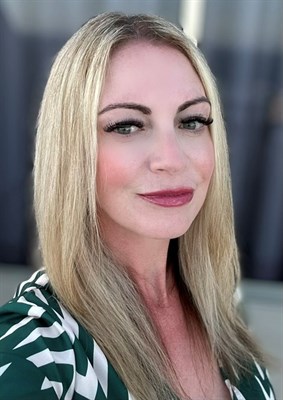 Ciara Hemingway is an experienced Dental nurse and successful Treatment Co-Ordinator based in Kent. Ciara Hemingway is an experienced Dental nurse and successful Treatment Co-Ordinator based in Kent.
Combining her implant and oral surgery experience with a strong hospitality management background, she works hard to create a patient centric journey from initial consultation to treatment end.
Having completed multiple additional skills courses, she taker on her own clinics, works with the principal dentist, and is the digital lead for her practice.
She has a strong interest in all aspects of digital dentistry, treatment planning and consent.
As a dental educator and mentor, she believes that empowering dental nurses to take on more skills and a greater role in the patient experience which will ultimately lead to a stronger team and more cohesive patient workflow.
|
| 16:30 |
IV Sedation for Long Implant Cases - Is There a Safer Way? The provision of IV Sedation is governed by the IACSD standards 2020 which limits primary care sedation to mainly benzodiazepine based sedation. This can be hard to manage and deliver for longer implant cases so sometimes a secondary care GA drug Propofol is used, with a narrower margin of safety. .In this presentation I will present cases of 4 hours plus sedation for full arch implant cases using a new drug Remimazolam, which gives a more predictable and controllable sedation with rapid predictable clean recovery.
Learning Objectives
-
Understand the concept of increasing the complexity of procedures with complex sedation
-
Understand the IACSD standards and how they relate to the safe use of sedatives
-
Appreciate the benefits of remimazolam in the safe sedation of patients
Robert Endicott 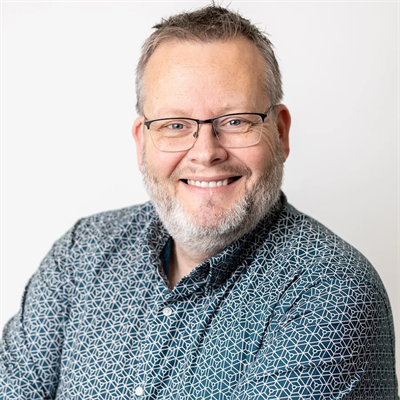 Rob is the founder of UKSedation, a team of dentists around the country sedating anything from complex treatments like full arch implant therapies to restorative and endodontic procedures. Rob is the founder of UKSedation, a team of dentists around the country sedating anything from complex treatments like full arch implant therapies to restorative and endodontic procedures.
Rob is an RCSEng accredited trainer and mentor and regularly trains and mentors dentists and nurses in IV and Inhalation Sedation as well as ILS courses for the dental team.
Rob gave up his “wet fingered” dentistry in 2008 to focus full time on providing sedation to patients and increasing the awareness of sedation as part of routine dentistry.
|
| 16:50 |
Panel Discussion
|
| 17:15 |
Drinks Reception
|